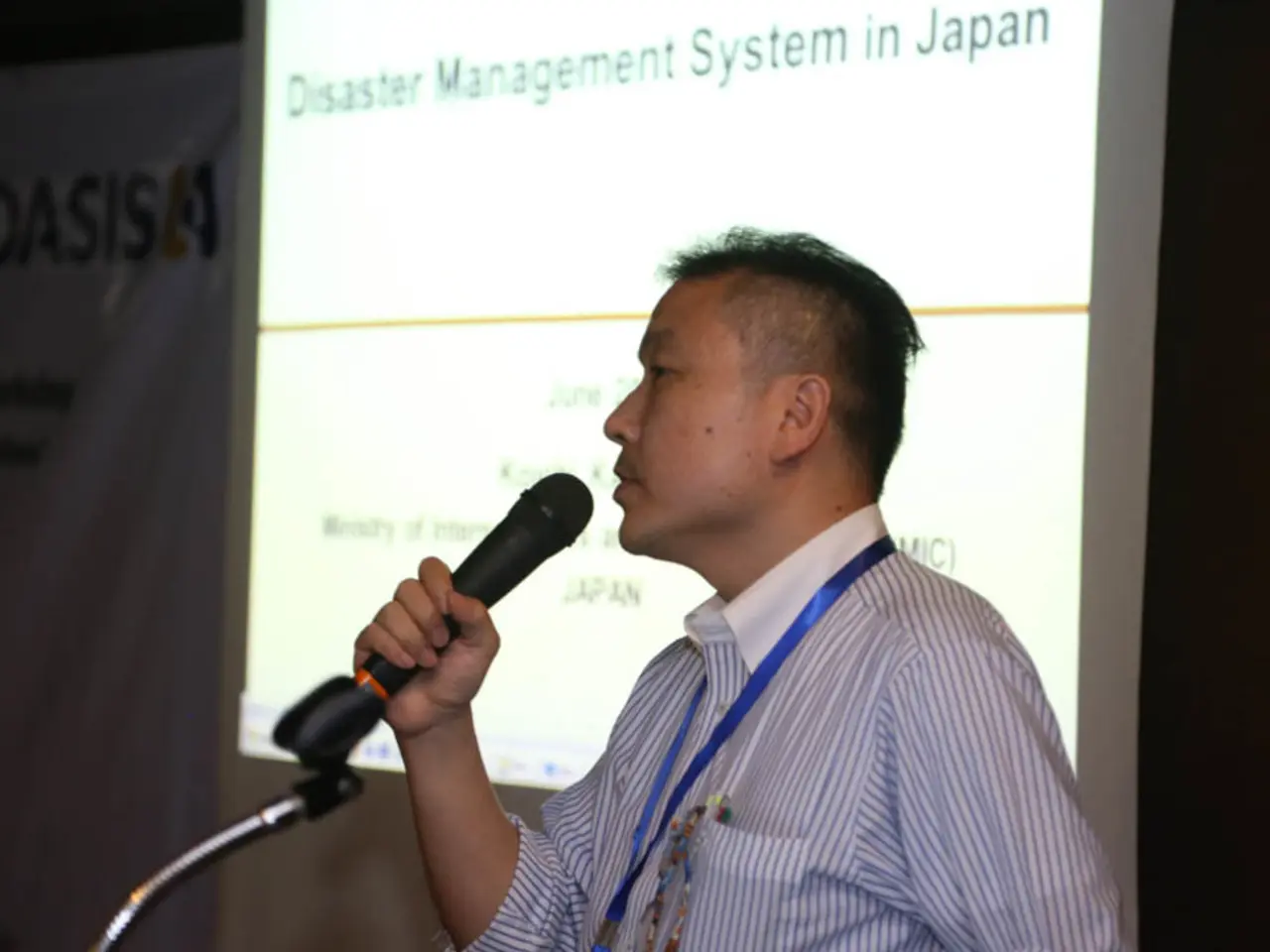Protestors from the Left Activists Group Disrupt Normal Proceedings of Landtag Meeting with Demonstration - Disruptive protestors, aligned with leftist ideologies, cause chaos during a parliamentary meeting.
Article:
Leftists Disrupt Saxon State Parliament Session with Protest for Detained Activist Maja T.
In a striking display of defiance, a group of leftist activists stormed the Saxon State Parliament session, causing quite the ruckus as they protested the ongoing detention of non-binary activist Maja T. (24) in Budapest. Their actions were prompted by the rejection of an application for house arrest and the grave allegations of violent acts against suspected right-wing extremists.
Around ten protesters could be heard chanting "Free Maja" and other slogans, disrupting a speech by Prime Minister Michael Kretschmer (CDU). The unfolding chaos led to prompt intervention by security personnel, who removed the demonstrators from the premises.
Maja T. has been in detention in Budapest for months, facing charges of participating in alleged violent confrontations against far-right activists during the "Day of Honour" event in February 2023. These clashes, which have led to severe bodily injuries, place Maja under suspicion for four counts of attempted assault.
Landtag President Alexander Dierks expressed disapproval of the disruption, stating that these actions violate the rules of procedure, lack respect for the dignity and discussion culture of the House, and contradict the way society resolves conflicts.
The "Antifascist Solidarity Committee" Dresden justified the action, arguing that the activist is currently on a hunger strike. Maja T. was extradited from Dresden to Hungary last year in a questionable action and has faced harsh pretrial detention, including solitary confinement, constant video surveillance, intimate searches, inadequate food, and poor cell conditions. Adding to these woes, legal proceedings have repeatedly been delayed or postponed.
The case has become a divisive symbol of repression against activist groups in Hungary and the broader crackdown on anti-fascist movements in Europe. Human rights groups view the charges as politically motivated, and there are concerns about the fairness of Hungary’s increasingly authoritarian legal system. The extradition of Maja T. by Germany has stirred political tensions in Europe, with many countries refusing Hungary's extradition requests for antifascist activists but Germany's compliance has been met with controversy.
The case has also led to protests and solidarity actions in cities across Europe, including Dresden, Germany.
In summary, the plight of Maja T., currently detained in Budapest, is deeply rooted in a complex legal and political context involving allegations of violent clashes with right-wing activists, concerns about human rights, and questions about judicial fairness. The case has sparked protests in German cities and caused political disturbances in the Saxon State Parliament, reflecting the tense and contentious nature of the issue in Europe.
- The disruptive protest by leftist activists at the Saxon State Parliament session aligns with the realm of politics, as it pertains to the community policy and general-news categories, particularly the crime-and-justice subcategory, given the ongoing detention of Maja T. and the allegations against them.
- The unfolding events in the Saxon State Parliament, marked by the protest for Maja T., have stirred a wave of general-news headlines and discussions, showcasing the intense interest in the case, which transcends local boundaries, thereby implicating European politics.







